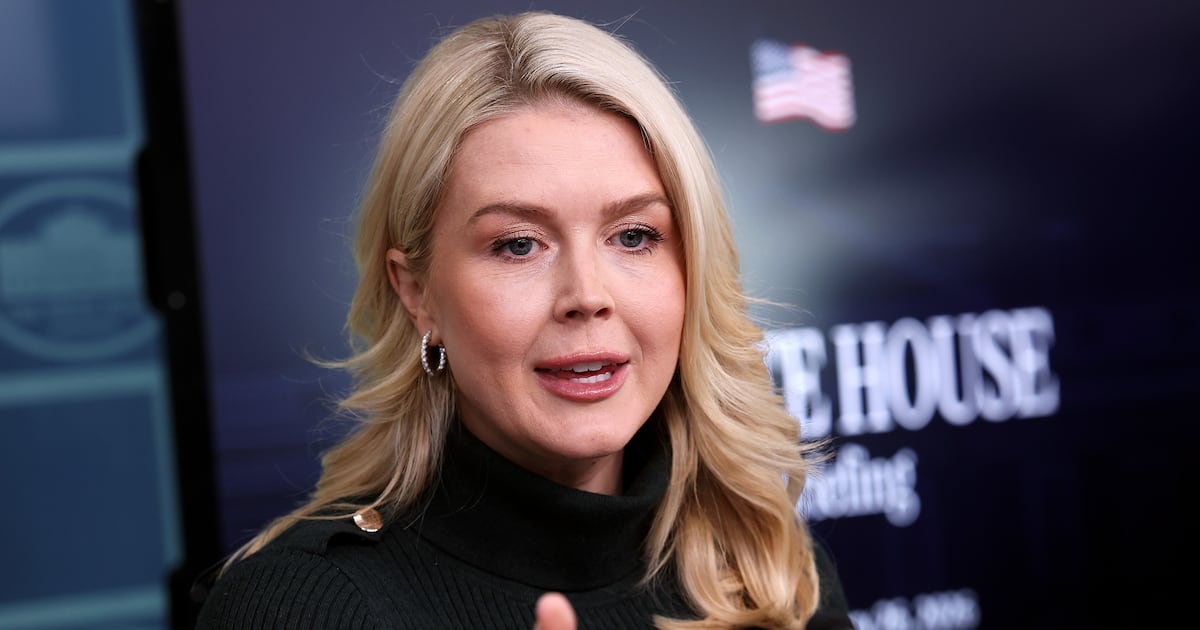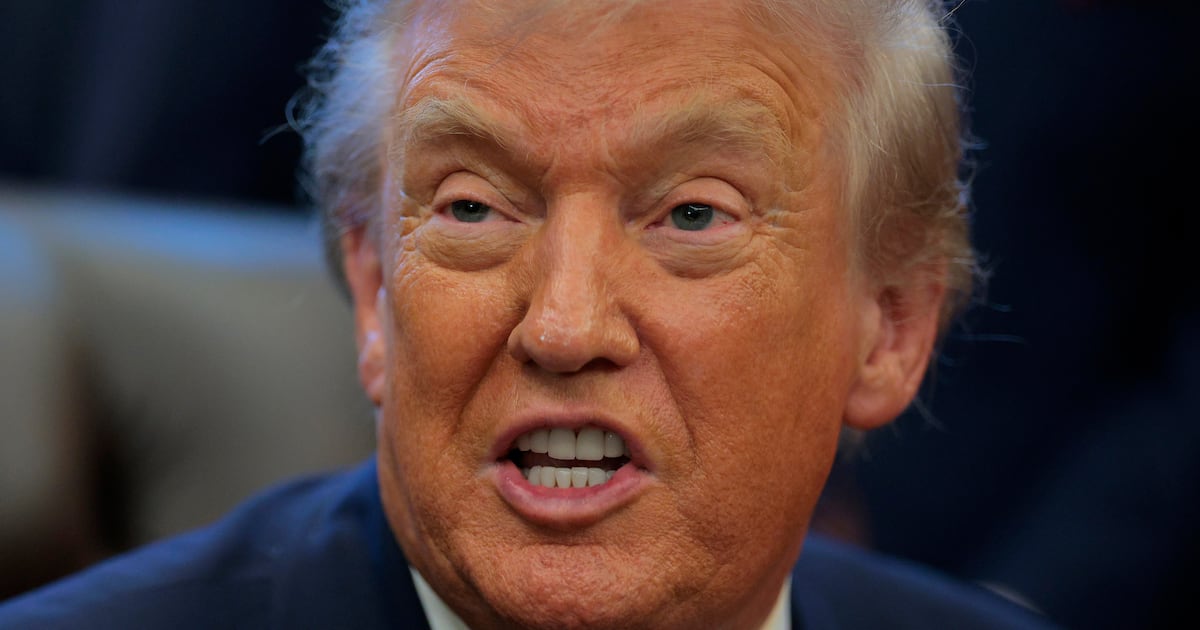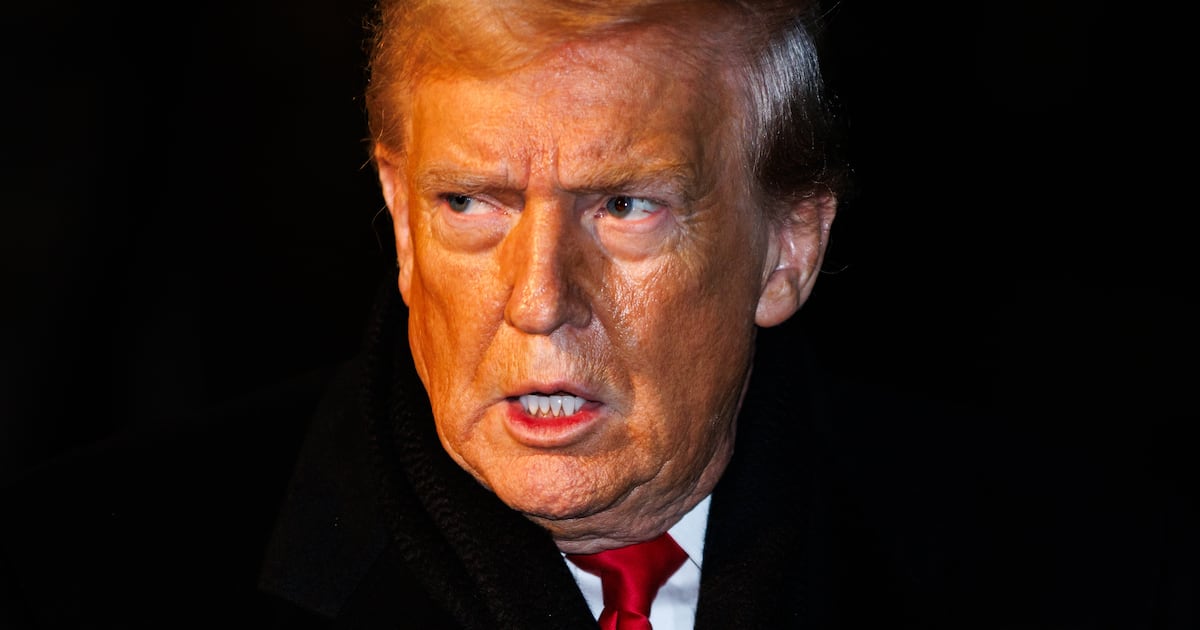King Abdullah of Jordan certainly has a way with words, especially insults. Thanks to Jeffrey Goldberg of The Atlantic, many of them are now on the record, and some may threaten his rule.

In a long profile based on several conversations Goldberg had with the monarch over the last four months, Abdullah disses other Middle Eastern leaders, dumps on his own spies, disparages his tribal supporters, and puts down his siblings. He’s got this vision, you see, of modernity and democracy, and these people around him just don’t get it. Or so he says, again and again.
The king, described in the headline as “Monarch in the Middle,” appears incredibly alone and alienated. Only the Israelis, the Jordanian Army, and his beautiful Queen Rania appear to escape his disdain.
“Refreshingly candid would be one way to describe his remarks,” says a longtime friend of the palace who, like many Jordanians, was more than a little shocked. “But you get the impression what he really wanted to say was, ‘Damn, why couldn’t I have inherited Sweden?’”
The Middle East not being Scandinavia, Abdullah’s remarks seem ill considered indeed. After a stormy day in Jordan’s social media Tuesday, the palace belatedly issued a statement saying the article included “many fallacies and took matters out of their correct context.” It then went on to say His Majesty really admires and respects just about all the people he appeared to have insulted. The problem is that so many in little Jordan’s educated elite have heard the king speak off the record in just this way. He likes to be blunt. Very blunt. So it’s hard to deny that he believes in private what he is now reported to believe in public.
The palace statement suggests that the controversial remarks were attributed to the king “in an inaccurate and untrustworthy manner.” His idea of the article was that it would show how he’s taking the country forward on the path of economic and political reform. Clearly he considered Goldberg, who wrote a laudatory profile in 1999, a friendly journalist to whom he could give privileged access. Perhaps without being explicit about ground rules, he thought he could leave it up to Goldberg to protect him. And, in fact, from an American point of view, the article is highly favorable. But it’s a little like Mitt Romney’s infamous 47 percent speech—good for one particular audience behind closed doors, disastrous with the general public in the light of day.
When I asked Goldberg about the ground rules with the king, he told me in an email that “the interviews were all recorded, by me and by his people, and they were all conducted in the presence of the chief of staff of the royal court, and the court’s chief spokesman. Also, he knew he was on the record, because this was discussed, obviously, and because he frequently went off the record during the interviews. Also, a senior official told me this morning that the court is not disputing the accuracy of the quotes, just the way they have been interpreted in the local, and other, media.”
Much of what Abdullah told Goldberg comes from the king’s concerns about the Muslim Brotherhood, which he likens to “a Masonic cult” taking over the region. They are “wolves in sheep’s clothing,” he says. He is wary of Turkish Prime Minister Recep Tayyip Erdogan, claiming Erdogan once said that “democracy for him is a bus ride. ‘Once I get to my stop, I’m getting off.’” Egyptian President Mohamed Morsi? “There is no depth to the guy,” says the king.
As for Bashar al-Assad, the Syrian president who’s currently slaughtering members of the Brotherhood, jihadists, and anyone else challenging his rule, the king muses on the Syrian’s early days in office. Assad seemed impervious to the monarch’s advice about how to become “the belle of the ball” at the World Economic Forum and other international events, a skill that the half-British, U.S.-schooled Abdullah mastered very quickly. Assad, in the king’s view, was not only uninterested but unworldly:
“There was a dinner with me and him and the king of Morocco, at the king’s residence in Cairo,” Abdullah tells Goldberg. “And so Bashar at dinner turns to us and says, ‘Can you guys explain to me what jet lag is?’” The king looks at Goldberg and arches his eyebrow. “He never heard of jet lag.”
Now, of course, the palace says the king “holds utmost respect and regard” for his fellow leaders. That would be wise, given that Turkey is a rising regional power, Jordan is hugely dependent on cut-rate Egyptian gas, and Syria is capable of provoking a great deal of mischief in its smaller, weaker neighbor.
Relations with Israeli Prime Minister Benjamin Netanyahu, on the other hand, are “very strong,” in the king’s opinion. No insults there, just the worry that the chance for a two-state solution for Israel and the Palestinians is about gone. He mentions the possibility of one state, which he refers to ironically as Isratine, that would end up either as a non-Jewish democracy or an apartheid regime. But in the article there is no mention of the enormous, indeed existential Jordanian fear that Israel eventually will expel 2 million Palestinians from the West Bank altogether. That would quickly make Jordan, with its current population of 6.5 million, many or most of whom are from Palestinian backgrounds, a de facto Palestinian state with little apparent need for a Hashemite monarch.
Internally, Abdullah has outmaneuvered the Jordanian Muslim Brotherhood quite successfully for the moment. It decided to boycott parliamentary elections in January only to see its campaign ignored by a majority of the voters who went to the polls anyway. Clearly Abdullah feels confident about overcoming the Brothers’ “bullshit,” as he calls their political opportunism. He notes that they refused to play ball with him in the early days of the Arab Spring, when he was trying to create a more democratic outlet for public opinion (as long as it didn’t challenge his rule). They saw other regimes toppling and thought his would too. “They thought they’d won,” he said. Now he thinks he’s won.
Abdullah also knocks American diplomats for being naive about the Brotherhood. “When you go to the State Department and talk about this, they’re like, ‘This is just the liberals talking; this is the monarch saying that the Muslim Brotherhood is deep-rooted and sinister,’” he told Goldberg. But the king believes it really is deep-rooted and sinister, and there are many Arabs who would agree with him. The Brothers with their bullshit were never going to be his buddies.
The problem with the Abdullah who emerges from Goldberg’s article is that he seems to have little or no respect for the friends and allies he does have in Jordan. He is transparently impatient with the traditional tribal leaders whose support has always been the bedrock of the monarchy. Their core identity revolves around their sense of honor and dignity. Now Abdullah is on record in the Goldberg article calling them “the old dinosaurs.”
Since the days of Abdullah’s father, King Hussein, Jordan’s intelligence services have been key to the regime’s survival. The General Intelligence Directorate known as the Mukhabarat tracks internal and external threats, and in the 1990s it was way ahead of most other services in the fight against al Qaeda. Its relationship with the American Central Intelligence Agency is extremely close and cooperative, and ties between the two countries often have depended more on rapport between the king and the CIA station chief than between the palace and the U.S. ambassador.
But, while Abdullah is known to remain quite close to at least one now retired CIA official, Rob Richer, his opinion of his own intelligence apparatus is extremely negative. He says it has been dominated by an old guard that has worked to undermine his reforms. “I was naive enough to think—coming from the Army, since in the Army they said ‘Yes, sir’—the GID would say ‘Yes, sir,’” he tells Goldberg.
Since Abdullah ascended the throne in 1999, he has put two heads of the GID in jail for corruption, and another “died in disgrace,” as Goldberg writes, even though it was the king who appointed them in the first place. The current head of GID is supposed to be cleaning things up, but he will have to worry that at any moment he can become the monarchy’s latest scapegoat.
With so many treacherous enemies around him, you’d think Abdullah would be shoring up his close family ties. But no.
“Look at some of my brothers. They believe that they’re princes, but my cousins are more princes than my brothers, and their in-laws are like—oh, my God,” he tells Goldberg. “I’m always having to stop members of my family from putting [police] lights on their guard cars. I arrest members of my family and take their cars away from them and cut off their fuel rations and make them stop at traffic lights. I’m trying to be that example.”
Aware that corruption by family members helped sink the regimes in Tunisia and Egypt, he told Goldberg that family sensitivities “become irrelevant. If you catch my son being corrupt, take him to court. I’ve said that quite clearly from day one. What I’m trying to say is that everybody else is expendable in the royal family. Does that make sense? That’s the reality of the Arab Spring that hit me.”
Unfortunately the reality of the Jordanian spring this year may be quite different. A king who insults his fellow leaders, his opposition, his core supporters, his intelligence services, and his family risks discovering that he is the one who’s expendable.






